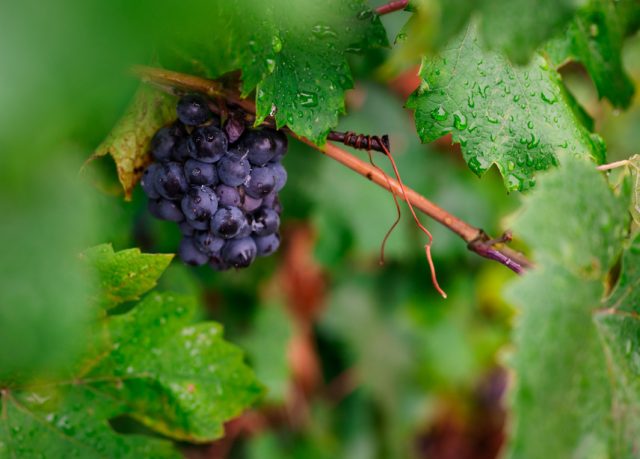This website uses cookies so that we can provide you with the best user experience possible. Cookie information is stored in your browser and performs functions such as recognising you when you return to our website and helping our team to understand which sections of the website you find most interesting and useful.
Climate change making grape growing in England harder
Contrary to the view that the UK has become more amenable to grape growing due to climate change and hotter weather conditions, one English producer has argued the opposite.

According to the owner of Astley Vineyard, Bev Haywood, the increase in unpredictable weather as a result of climate change has made it harder to ripen grapes and create the consistency for wine flavours since its first plantings in 1971.
Speaking to the BBC, Haywood said the five-acre vineyard was at “the extremes of grape growing” in Worcestershire, producing 10,000 or fewer bottles of wine each year.
The news follows record production for a number of English vineyards across a year of wildly varying weather, resulting from the global increase in temperature of 1.1C since 1850, with governmental targets aiming to limit rises to 1.5C.
July saw more than 140mm of rain fall on English soils, which was the sixth highest total for July since records began in 1836, though the preceding drier month meant that grapes had developed enough to withstand Storm Antoni, when it blew in.
Earlier in October, db reported producers were saying the harvest was “amazing”, and contained “unbelievable” yields as the grapes began to be brought in.
Producers including Henners, Squerryes and Ridgeview all reported that it was one of their best harvests. Although Mardi Roberts at Ridgeview did say that “July was so wet, and we were hit with a bit of mildew which affected the canopy” but added that it “never got to the grapes”.
Like 2014, this year saw a good flowering and then a wet summer, followed by a sunny September, it wasd reported, which has ensured both a large crop but also a long, slow ripening. Earlier in the summer, the interim CEO of WineGB, Ned Awty, told db that the dry, warm June resulted in an early and strong fruit set, with plenty of good sizeable bunches.
But Astley raised concerns the variety of weather wasn’t necessarily having a positive impact and was making growing conditions more challenging.
Haywood’s son, Chris, said the increase in rain meant that the likelihood of diseases was higher, and it also diluted the grapes, resulting in less flavour, which also impacted prices.
Speaking about the 2023 harvest, he said: “This year there has been an increase in diseases so there has been a smaller yield”. And, in relation to the impact on flavour from dilution, he said that “we have to charge a bit less as the wine isn’t as exciting as other years.”
But Haywood also said he wanted the conversation around English wine to continue so consumers understood why the flavour of its wines changed from year to year.
He said all farming was “on edge” and that the vineyard “fight ever year” but was always on its toes although it was “at the mercy of the weather”.
The vineyard did well from tourism, he said, and was also hoping to set-up onsite accommodation to offset losses.

